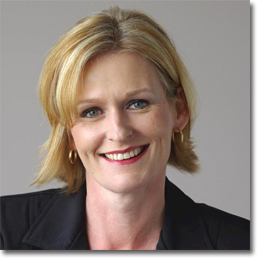Real estate practice of ‘double-ending’ under scrutiny in Ontario
Marketplace report shone spotlight on practice considered conflict of interest for agents
By Tiffany Foxcroft, CBC News: Apr 23, 2017
Trying to buy a home in a red-hot market can make it feel like the deck is already stacked against you.
But if a real estate agent is behaving unethically, it could cost you tens of thousands of dollars — or even the house of your dreams.
Help could be on the way in Ontario thanks to an impending review of unethical behaviour by real estate agents that has the potential to result in more fairness and transparency during heated bidding wars, real estate agents say.
The Ontario government’s newly announced Fair Housing Plan includes a commitment to review the rules governing real estate agents, including a practice known as double-ending in which one agent represents both the buyer and the seller.
Double-ended sales mean more commission for the realtor and can potentially block competing offers.
Ontario to consult with real estate sector
The Ontario Ministry of Consumer and Government Services said Friday it doesn’t yet have specific details of a review into double-ending but said “the government will be consulting with the real estate sector and consumers on potential changes to the rules.”
Earlier this year, an undercover investigation by CBC’s Marketplace revealed that several top agents in the Toronto area were attempting to double-end real estate deals in order to double their sales commission.
“I think at a minimum they need to ban the practice of one real estate agent representing both parties,” he said. “That is the biggest problem.”
Agent says multiple offers also need closer look
Melanie Piche, another Toronto agent, agrees. She’s been calling for a ban on the practice for years.
“In my ideal world, designated agency would be the way it goes,” she says.
Designated agency means the same brokerage firm — but not the same agent — can represent both buyer and seller.
Piche said the government should also look into how multiple-offer situations are handled. For example, agencies representing both buyer and seller should be required to submit their bid first so they cannot take advantage of knowing the other buyers’ offers.
Double-ending is allowed throughout much of Canada, including in Ontario, as long as it’s disclosed to all parties involved in the transaction.
B.C. poised to crack down on double-ending
The practice came under scrutiny in British Columbia last year, and an independent advisory group formed by the premier recommended double-ending be eliminated.
In Ontario, agents are forbidden under the Real Estate and Business Brokers Act from manipulating deals or using confidential information to give clients an unfair advantage.
But the Marketplace investigation revealed that several agents in the Greater Toronto Area were breaking those rules.
Marketplace reporters posed as home buyers and visited 10 top-selling real estate agents in the GTA. The show used hidden cameras to document whether potential buyers attempting to purchase homes through the listing agent were given any advantage over other buyers.
Six of 10 agents double-ended deals
Some agents suggested the Marketplace staff should get their own agent, but six of them promised to share confidential information and give the buyer an advantage if they were to represent both parties in a bidding war.
“I can inform you of what’s happening with the price,” one agent said. “If [another] guy comes in at $1.32 million, I can say: ‘Guys, you need another $10,000 or $5,000.'”
Another agent broke the rules by revealing the exact amount of a competing buyer’s bid.
Yet another — who double-ended nearly 40 per cent of her deals over the previous year — said that because she had “control on both sides,” she could use her clout to rush an offer through before other offers came in.
The six agents denied they’d done anything wrong and said their conduct was commonplace in the industry.
Revelations caused watchdog concerns
Marketplace looked at sales data for 10 of the hottest neighbourhoods in the GTA and discovered one in 10 sales was a double-ended transaction.
The Real Estate Council of Ontario (RECO), the regulating body responsible for agents operating in the province, said the Marketplace revelations caused it “grave concern” and called the behaviour caught on hidden camera a clear breach of regulations and ethics.
The organization also said it planned to discuss double-ending with Ontario’s Minister of Government and Consumer Services.
Marie-France Lalonde, the minister at the time, told Marketplace she was open to banning the practice but said she felt government regulations were sufficient to protect consumers.
Government officials wouldn’t say Friday whether they’ve changed their mind.
“Our plan to improve protection for home buyers is part of a larger government vision to become a leader in consumer protection that will benefit all Ontarians,” the Ministry of Government and Consumer Services said in a statement.
http://www.cbc.ca/news/business/real-estate-double-ending-update-wynne-1.4080999
Comments are closed.










